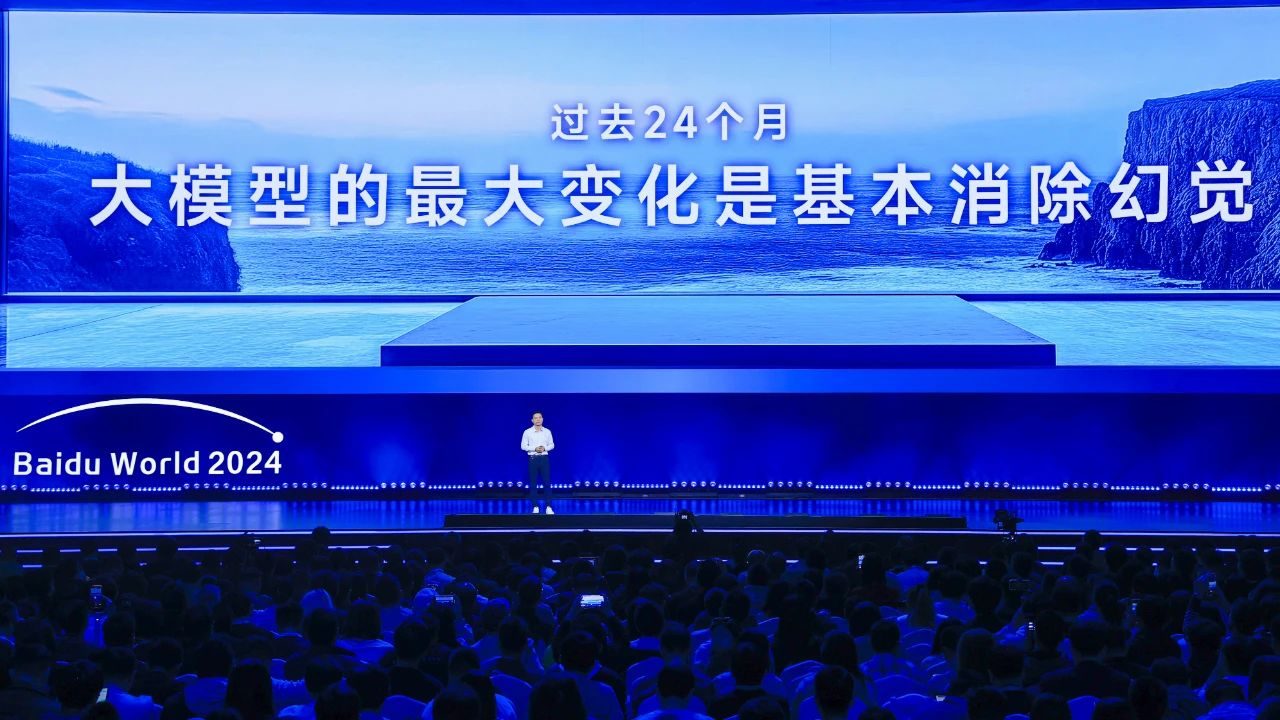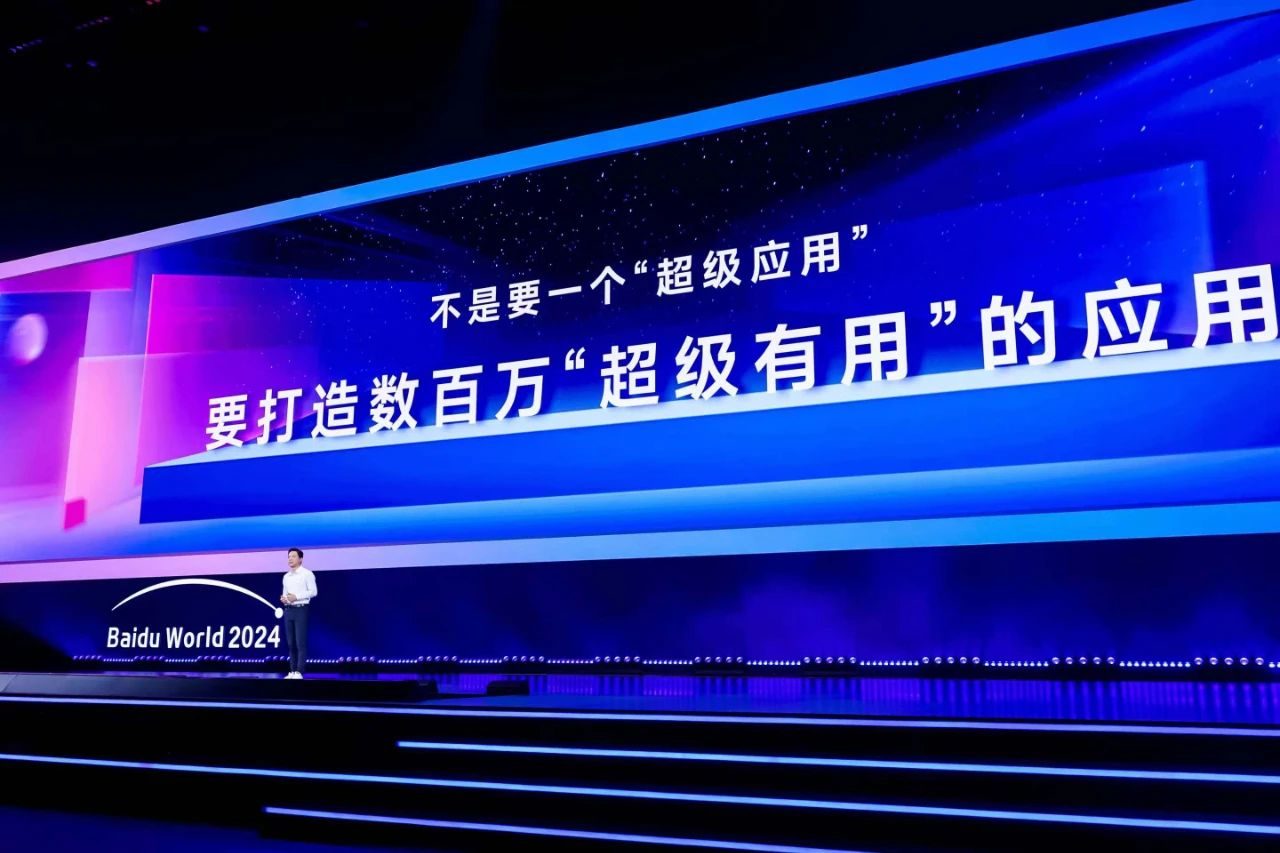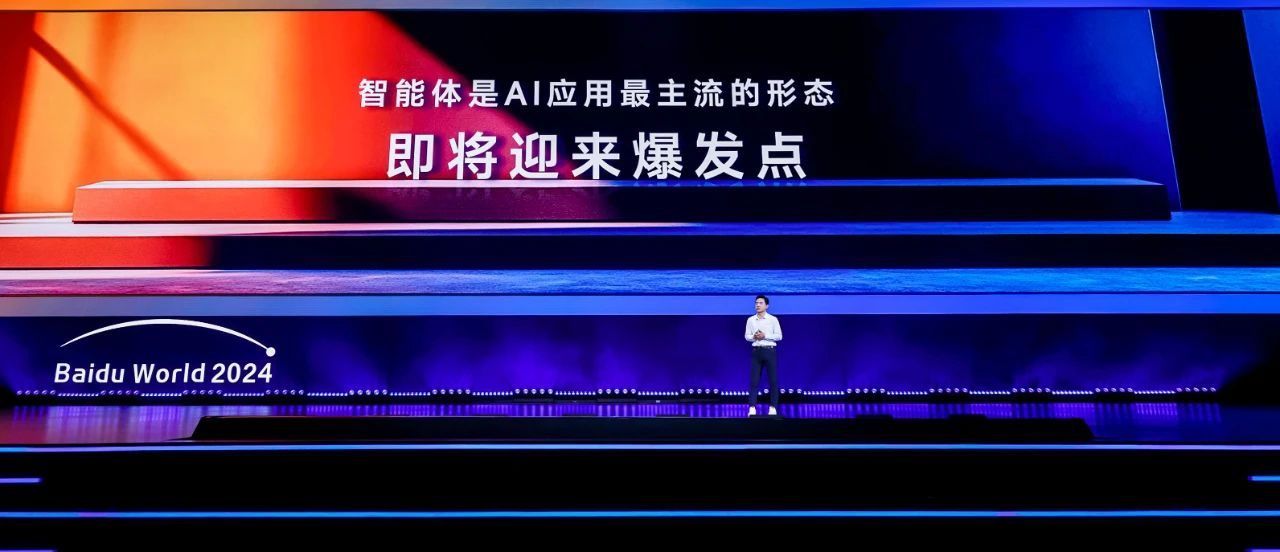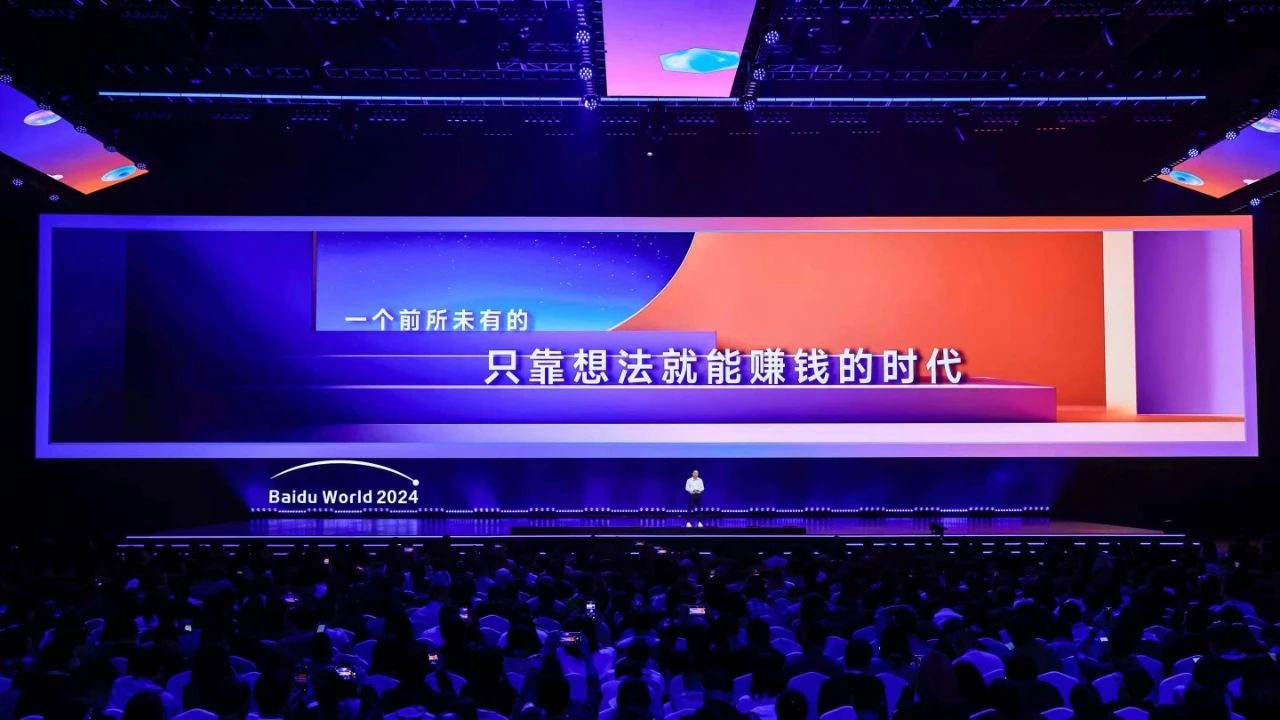Baidu AI Focus: 'Super Useful' is More Important Than 'Super App'
![]() 11/18 2024
11/18 2024
![]() 484
484
It has been nearly two years since ChatGPT emerged in 2022, and the concept of AI has skyrocketed in popularity since then, propelling companies like NVIDIA and Microsoft to new heights and spurring rapid growth in market capitalization. However, today, more and more industry professionals are questioning whether we are in the midst of another internet bubble.

This blame can be attributed to ChatGPT.
When it debuted two years ago with the promise of "answering everything," everyone envisioned that the super app of artificial general intelligence (AGI) had arrived on the horizon.
People anticipated that in the near future, a unified platform akin to search engines like Google and Baidu, or social media platforms like WeChat and TikTok, would emerge, propelling AI to its peak.
However, as a classic joke goes, the horizon is a line that recedes as you approach it.
The technical challenges are far greater than optimists anticipated. After the initial excitement wore off, expectations turned to disappointment. Despite the intense global competition among AI models, the path to creating a super app remains elusive, always just out of reach.
The industry's eagerness for a 'super app' is somewhat misguided, akin to using an old map to find a new world. Of course, amidst the illusions and disappointments, there are always exceptions and thoughtful pioneers. At the 2024 Baidu World Conference, Robin Li's speech and interview were insightful, prescient, and instructive. In summary, they were simple yet profound - the goal is not to launch a 'super app' but to create millions of 'super useful' applications.

The theme of this year's Baidu World Conference is "Apps Are Coming." Here, 'apps' may not refer to a 'super app,' and Baidu does not believe that developing a single 'super app' can solve all problems. Instead, Baidu aims to empower others, continuously helping more people, industries, and businesses create millions of 'super useful' applications.
By emphasizing 'super useful,' Robin Li is not negative super apps. As an "AI long-termist" and the "leading player in China's AI industry" according to VivaTech, Robin Li is certainly not pessimistic about AI technology. However, the current "timing is not right." Instead, this represents a combination of idealism and pragmatism.
Baidu was one of the earliest Chinese companies to venture into AI. For over a decade, it has been steadfast in conducting AI research, and Robin Li is an unwavering advocate for AI. As a member of the National Committee of the Chinese People's Political Consultative Conference, Robin Li has submitted 13 AI-related proposals during the past eight "Two Sessions," mentioning "artificial intelligence/AI" over 500 times since 2016. From 2019 to the present, 40 of Robin Li's speeches have been related to AI. Years of research have given him a unique perspective on the current state of AI.
Robin Li said, "It's easy to compare this wave of generative AI with the previous wave of mobile internet or the wave before that of PC internet." However, in his view, this should be considered a new industrial revolution. "This means it won't end in three to five years, nor will a super app emerge in just one or two years. It's more like a complete reconstruction of all aspects of society over the next three to five decades."
At the WAIC Forum in Shanghai in July this year, Robin Li also made similar remarks - we must avoid falling into the "super app trap," thinking that only an app with a daily active user count of 1 billion can be considered successful. This is a mobile era mindset. In fact, it doesn't have to be that way. In the AI era, 'super capable' applications are probably more important than 'super apps' that only focus on DAU. As long as they can significantly benefit industries and application scenarios, their overall value is much greater than that of the mobile internet.
In other words, let castles in the air take root in reality, return to scenarios, and connect with the ground. AI cannot be limited to just chatting.
So, how can this be achieved?
At the Baidu Conference, Robin Li provided many explanations and demonstrations, mainly focusing on two aspects: the application of large models in both the C-end and B-end markets; and the support and assistance Baidu can provide as a development and tool platform for large model applications.

Robin Li defines intelligent agents as the mainstream form of future AI applications. They are not just tools that can answer questions but rather a collection of knowledge and processes from various industries - they can be an academician farmer, a professional lawyer, or even a virtual assistant for business operations. If previous AI applications were more tool-like in nature, at this conference, Baidu endowed 'intelligent agents' with more 'role attributes.'
Previously, many people struggled with how to highlight the efficiency value of large models in specific scenarios. Baidu's current answer is: instead of struggling with the myriad challenges of adapting AI applications to various scenarios, it is better to allow enterprises or individuals in those scenarios to create their own solutions.
Achieving this is not easy. Notably, there is the issue of AI hallucinations, which leads them to "misread and respond incorrectly," often spouting nonsense seriously.
However, as Robin Li said, the biggest change in large models over the past two years is the elimination of most "hallucinations." By connecting large models to the internet and utilizing retrieval-augmented generation (RAG) and other enhanced search technologies, AI now Commonly cited content sources , searches multiple materials to form answers.
However, the hallucination problem of text-to-image generation still exists. Robin Li introduced that one of the obstacles encountered during the development of various applications at Baidu is the hallucination of large models. "I can only move forward after removing the obstacles." The "iRAG" (retrieval-augmented generation) demonstrated at the Baidu World Conference significantly improves image generation through a joint optimization of the three stages of "understanding, retrieval, and generation." By combining Baidu Search's hundreds of millions of image resources with powerful basic model capabilities, iRAG significantly enhances image generation results, ultimately producing images that are notably more accurate and realistic than similar applications.
iRAG has excellent application scenarios in the marketing industry. For example, when an automotive company launches a new car model, it needs to take very attractive photos. Taking a single car photo can cost thousands or even tens of thousands of dollars and take a long time. Nowadays, iRAG technology can come into its own. During the 2024 Baidu World Conference, Robin Li demonstrated an image of a Volkswagen Tiguan leaping over the Great Wall, generated by the ERNIE Bot large model. Using Baidu's iRAG technology, neither the car model and logo of this specific car model nor the Great Wall in the background exhibited any hallucinations such as errors or deformations. "iRAG is extremely valuable in almost all creative scenarios."
On the B-end, Baidu also has the Baidu Intelligent Cloud Qianfan platform for model and application development and the Baige computing power management platform. Through these platforms, enterprises can turn their ideas into reality, transforming AI capabilities into tangible productivity.
For example, companies like BYD and Vidal Sassoon have official intelligent agents that serve as both customer service and sales representatives, providing 24/7 online customer support, significantly enhancing interactive marketing efficiency. After the launch of BYD's official intelligent agent, the conversion rate of sales leads increased by 119%. Yum China, China's largest catering company, has an AI customer service system based on Baidu's ERNIE Bot large model and Qianfan platform that can handle over 150,000 customer service communication tasks daily with a problem resolution rate of 90%.
During the conference, the Baidu Intelligent Cloud Qianfan large model platform also showcased the "Workflow Agent" feature. It can help enterprises rapidly develop AI applications for complex conversational scenarios, quickly obtaining professional-level "digital employees." By learning various enterprise processes and regulations, the Workflow Agent can adapt to different job responsibilities, enabling rapid and scalable replication, significantly enhancing enterprise operational efficiency.
Public data shows that over 60% of central and state-owned enterprises and a large number of private enterprises are using Baidu Intelligent Cloud for AI innovation. The Qianfan platform has helped customers fine-tune 33,000 models and develop 770,000 enterprise applications.
Another noteworthy statistic is that as of early November 2024, the average daily call volume of Baidu's ERNIE Bot large model has exceeded 1.5 billion, a roughly 30-fold increase from the 50 million disclosed a year ago. This skyrocketing growth curve demonstrates the depth of AI demand, and as more 'usable' intelligent agents are implemented and more enterprises join the Baidu Intelligent Platform, the market prospects for AI applications are bound to broaden further.

As Robin Li put it, "We are on the verge of witnessing a moment of brilliance for AI applications." During his speech at the Baidu World Conference, Robin Li highlighted Baidu's "Miaoda" - a development tool that enables code-free programming, multi-agent writing, and multi-tool invocation. In short, through "Miaoda," ordinary people can easily create applications without needing programming skills.
The emphasis on "Miaoda" reflects Baidu's commitment to its strategy as an "AI enabler." Baidu aims to provide AI infrastructure, computational power, and development tools. China has a unique industrial depth, application scenarios, and enterprise scale globally. While Baidu excels at providing AI infrastructure like water, electricity, and gas, it also needs more developers to participate in AI scenario development.
As Robin Li said: "AI applications creating the world." From geek toys to practical tools, from simple responses to all-encompassing functions, AI is gradually shaping every aspect of our world.
AI indeed requires a combination of long-term vision, idealism, and realism. It takes determination and patience, enduring immense solitude to embrace the vast expanse of stars and seas.





